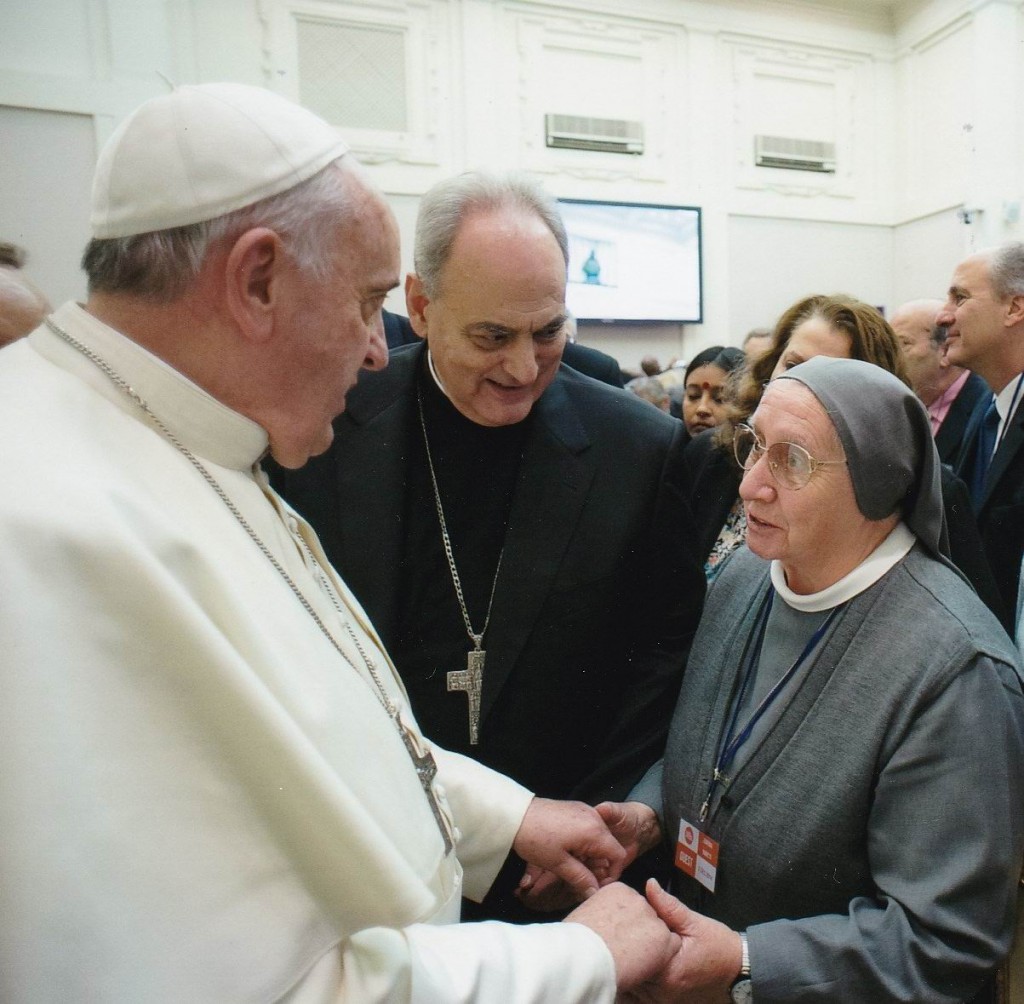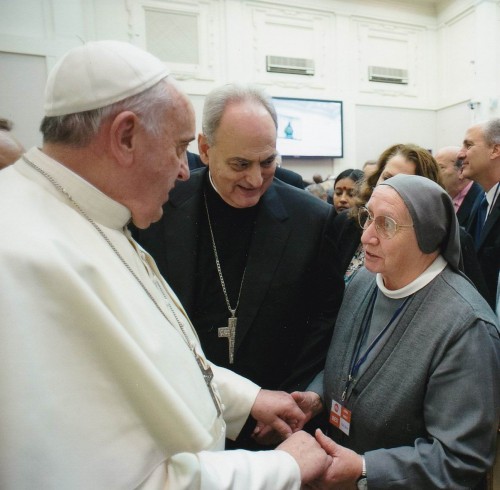2nd January 2015
World Day of Peace: Against Modern Slavery


The following is a guest blog by Steve Townsend, Deputy Head of Mission at the British Embassy to the Holy See
In his message for the World Day of Peace (1st January), Pope Francis has returned to the struggle against modern slavery. His address, entitled “No longer Slaves, but Brothers” highlights the many different faces of slavery, not only those working in fields and factories or in the sex industry under intolerable conditions, but also child labour, those kidnapped to be enlisted in conflicts, enslaved or sold on to the highest bidder, those forced to emigrate, and those whose organs are harvested and trafficked. He identifies as root causes, not only the disappearance of fraternity between people leading to corruption, armed conflicts and organised crime, but also the lack of education, combined poverty and poor employment prospects which makes people more vulnerable to being forced or tricked into slavery.
It is a powerful message, and one to which much of the world is listening more intently.
In early December 2014 in a meeting organised by the Global Freedom Network, major religious leaders, including Pope Francis, gathered in the Vatican to sign a joint declaration against modern slavery. Speakers including the Archbishop of Canterbury and the Ecumenical Patriarch of Constantinople, as well as representatives from the Muslim, Jewish, Buddhist and Hindu faiths, underlined the importance of ridding the world of this scourge.
Eliminating modern slavery is a priority for the UK as well. On 5 December the Home Secretary, together with the Catholic Bishops’ Conference of England and Wales and the Metropolitan Police, convened the second meeting of the Santa Marta Group of law enforcement authorities to discuss how to combat this crime at an international level. The UK’s Modern Slavery Bill is currently being debated in Parliament, and on 29 November the Government launched its Modern Slavery Strategy, which sets out the work that we will undertake domestically and internationally to deal with human trafficking and modern slavery in all its forms.
In his message, Pope Francis asks that all people of good will should work together to eliminate slavery. He recognises that it is an immense task, but it is a worthy goal that we should all aspire to.